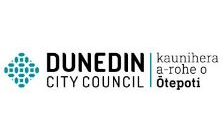Waldronville
Family types
In Waldronville, 50.7% of households were made up of family type 'couples with children' compared with 43.4% in the Macandrew Bay-Company Bay in 2018.
Households with Children require different services and facilities than other household types, and their needs change as both adults and children age. When many families in an area are at the same stage in their individual lifecycles, it creates a suburb lifecycle. Knowing where a suburb is in a cycle of change helps planners make evidence-based decisions about the demand for services both now and in the future.
To continue building the story, Waldronville's family data should be viewed in conjunction with Households, Household Size, Age Structure and Dwelling Type data.
Derived from the Census questions:
'How is each person in the household related to you?'
Total families
Source: Statistics New Zealand, Census of Population and Dwellings (opens a new window)
2006 and 2018. Compiled and presented in profile.id by .id (opens a new window)
(informed decisions).
Stats NZ data quality rating: Moderate(opens a new window)

Compiled and presented by .id (informed decisions).

Compiled and presented by .id (informed decisions).
Dominant groups
Analysis of the family types in Waldronville in 2018 compared to the Macandrew Bay-Company Bay shows that there was a higher proportion of couple families with child(ren) as well as a lower proportion of one-parent families. Overall, 50.7% of total families were couple families with child(ren), and 7.5% were one-parent families, compared with 43.4% and 8.8% respectively for the Macandrew Bay-Company Bay.
There were a lower proportion of couples without children in Waldronville, 41.8% compared to 47.8% in the Macandrew Bay-Company Bay.
Emerging groups
The number of families in Waldronville increased by 147 between 2006 and 2018.
The largest changes in family types in Waldronville between 2006 and 2018 were:
- Couple with dependent children (+60 households)
- Couple without children (+60 households)
